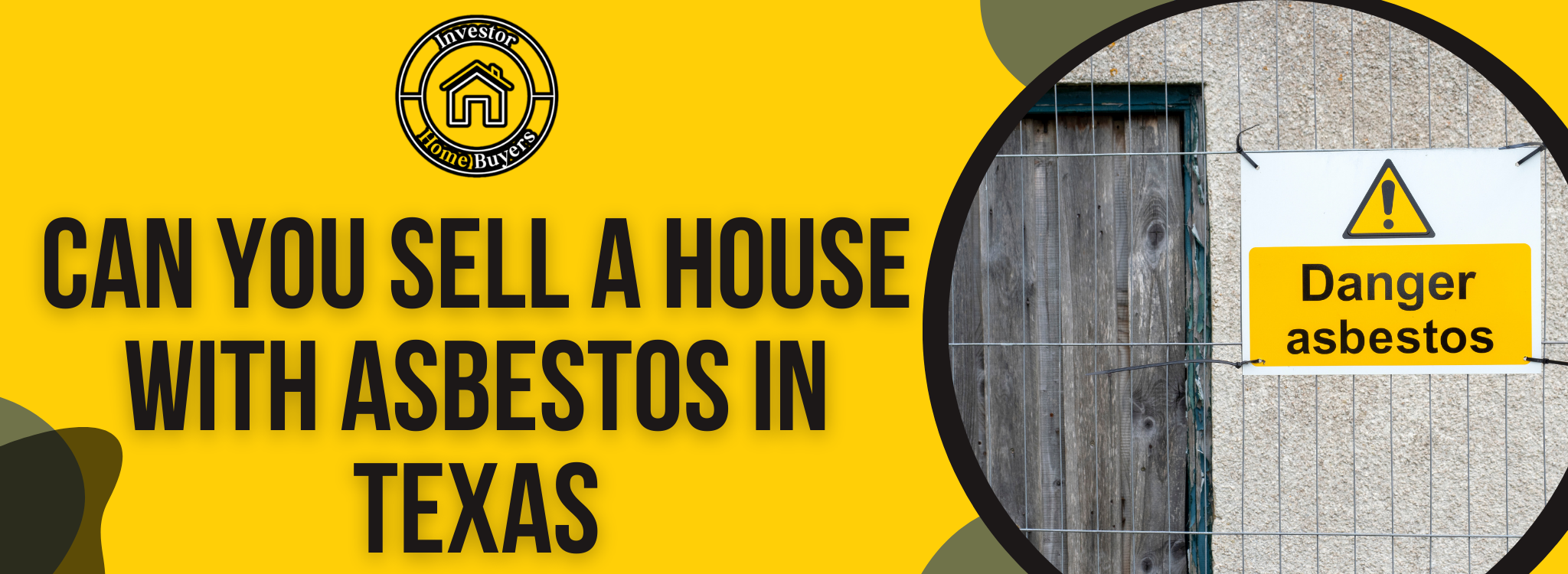
How Asbestos Affects Your Property Value
Asbestos was once popular in building materials but can lower your property’s value today. Homebuyers and real estate investors often worry about its health risks, leading to lower home appraisal and a bad market perception. If asbestos is found in a home, removing it can be expensive, lowering the property valuation. Buyers might consider these costs when deciding on a purchase, adding financial implications.
Factors Influencing the Impact of Asbestos on Home Valuation
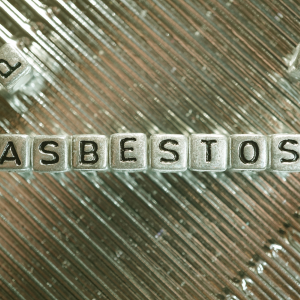
Several factors influence how asbestos affects a home’s value:
- Market Conditions: Asbestos might not matter as much in a strong housing market if demand is high. But in a buyer’s market, it can make homes less appealing.
- Inspection Outcomes: Professional inspections that reveal asbestos help assess risk and potential financial concerns for buyers.
- Appraisal Adjustments: Appraisers must consider the cost of removing asbestos, which can lower the property’s value.
- Buyer Sentiment: Public awareness of asbestos risks can scare off buyers, affecting the housing market trends.
Can you improve your home value with Asbestos Present?
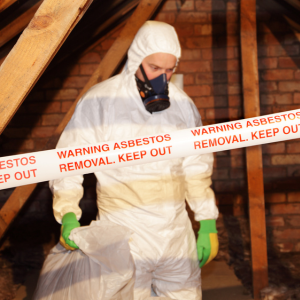
It is possible to raise your home’s value even with asbestos:
- Home Improvement Projects: Do renovations without disturbing asbestos to improve other parts of the property.
- Asbestos Management: Encapsulation can safely contain asbestos, reducing health risks and making the home more attractive.
- Renovation Strategies: Make renovations that modernize the home and address asbestos issues. Offering incentives for remediation work can attract buyers.
- Disclosure Practices: Being open about asbestos and taking action to manage it can build trust with buyers and lessen negative impacts on value.
Using these strategies, homeowners might maintain or even boost their property’s appeal and marketability.
What Are the Health Risks of Asbestos for Buyers?
Be aware of asbestos health risks when buying a home. Asbestos fibers can cause serious health problems, such as lung cancer, asbestosis, and mesothelioma. These hazardous materials are a concern for buyers, especially those considering older Texas properties.
Health Risks
- Lung Cancer: Long-term exposure to asbestos fibers raises the risk of lung cancer, particularly for smokers.
- Asbestosis: This chronic lung condition stems from inhaling asbestos fibers, leading to breathing problems and lung tissue damage.
- Mesothelioma: This rare cancer affects the lining of the lungs and abdomen and is closely linked to asbestos exposure.
Knowing these risks helps buyers make smart choices and take precautions when facing potential asbestos exposure.
Understanding the Potential Health Risks Related to Asbestos
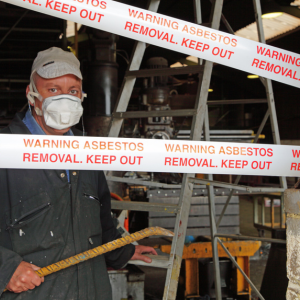
Asbestos, often found in building materials, can be dangerous due to its fibrous makeup. Breathing in asbestos fibers can lead to diseases such as mesothelioma, lung cancer, and asbestosis.
Serious Health Concerns
- Exposure: Continuous contact with asbestos in insulation or other materials can release fibers into the air.
- Breathing Problems: Asbestos fibers lead to breathing issues that might not appear until years later.
- Symptoms: Early signs like persistent cough, chest pain, and difficulty breathing call for medical attention.
Buyers should recognize these hazards to protect themselves and their families from long-term health dangers.
How Can Buyers Mitigate Health Concerns When Purchasing Homes with Asbestos?
Buyers can take steps to reduce health concerns related to asbestos when purchasing homes.
Inspection and Testing
- Licensed Inspection: Hire a licensed professional to inspect and test for asbestos, confirming its presence or absence.
- Real Estate Professional Disclosures: Work with real estate professionals who meet disclosure requirements about asbestos.
Asbestos Removal and Remediation
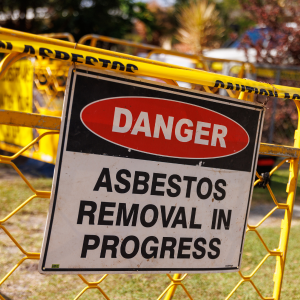
- Professional Remediation: If asbestos is found, hire experts for removal or remediation to lower health risks.
- Mitigation Strategies: Use strategies to handle asbestos and properly manage any affected areas safely.
Buyer Rights and Environmental Hazards
- Understanding Rights: Learn about buyer rights regarding asbestos properties in Texas to tackle environmental hazards.
- Engage Experts: Consult environmental health experts to follow Texas regulations when selling a home with asbestos.
By following these steps, buyers can address possible asbestos hazards confidently, protecting their health and property value.
If you have more questions or insights, leave comments below or share your experiences. Your input helps build a knowledgeable community.
Is It Legal to Sell a House With Asbestos in Texas?
Yes, it is legal to sell a house with asbestos in Texas. However, there are specific rules you must follow to comply with state regulations. Asbestos is widely used in construction but is hazardous when disturbed. This means sellers in Texas need to follow certain guidelines during real estate transactions to protect themselves and their buyers.
If your house has asbestos, you must disclose this to potential buyers. Honest disclosure is important for meeting legal requirements and keeping trust in the sale process. Not disclosing asbestos can lead to legal issues and may hurt the sale. Ensure you understand your obligations under Texas law to ensure a smooth and legal home sale.
Overview of Texas Asbestos Regulations in Real Estate

Texas has set laws on managing asbestos in real estate to reduce risks and protect public health. Knowing these laws is important whether you’re buying or selling property.
- Asbestos Identification and Disclosure: Get an asbestos inspection from a licensed inspector before selling. You must tell buyers about any asbestos found and explain exactly where it is.
- Asbestos Abatement: If asbestos removal is needed, it must be done by certified experts following Texas abatement laws. These laws ensure safe handling and disposal, which protects everyone involved from exposure.
- Compliance with State Environmental Laws: In addition to asbestos, ensure you follow all Texas property and environmental laws. This includes checking for other hazards affecting the property’s safety or value.
Following these rules helps meet Texas real estate law requirements and creates safer homes for future residents.
What Are the Seller’s Obligations Under Texas Law?
Sellers in Texas have clear duties regarding asbestos disclosure during home sales. Fulfilling these duties is crucial to keep the transaction legal and avoid problems.
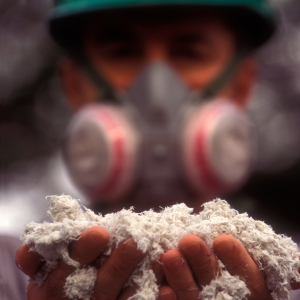
- Disclosure Obligations: You must inform buyers about asbestos in the home. This should be documented and shared before closing the sale. Providing a written report from a certified inspector can back up your disclosure.
- Compliance with Texas State Disclosure Laws: Texas requires that you disclose all known defects and hazards. Sellers should know these laws well to ensure they follow them completely.
- Documentation and Records: Keep detailed records of asbestos inspections and any abatement work done. This documentation proves compliance and can help if disputes arise after the sale.
By meeting these obligations, sellers protect themselves legally and build trust with buyers. This makes real estate transactions smoother. If you have more questions about selling a house with asbestos in Texas, feel free to reach out or comment below. Share your experiences or questions about Texas real estate transactions.
How Can You Market a House With Asbestos?
Strategies for Highlighting Property Advantages Despite Asbestos
Marketing a house with asbestos can be tough, but you can still attract buyers by focusing on the property’s strengths. Here are some strategies:
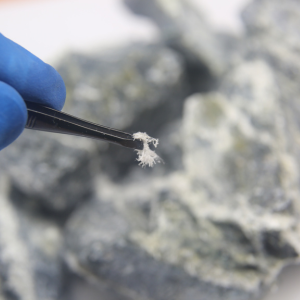
- Emphasize Unique Features: Highlight key aspects like location, size, or architectural style. Use professional photos and virtual tours to present these features to potential buyers.
- Hire a Real Estate Professional: Work with an expert who knows the market well and can effectively position a house with asbestos. Their expertise can help portray the property positively.
- Educate Buyers: Explain how asbestos was historically used and any efforts made to manage it. This can reassure homebuyers that the property is safe and maintained.
- Target the Right Audience: Aim for buyers interested in a lower price or those planning to renovate. Understanding your target audience allows you to craft a more precise marketing message.
- Address Perception Issues: Be open about asbestos and its implications. Honesty can build trust with potential buyers.
Should You Disclose Asbestos Presence Upfront?
In real estate transactions, transparency is vital, especially when selling a home in Texas. Sellers must be aware of their duties regarding asbestos disclosure:
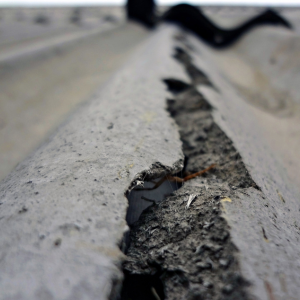
- Disclosure Requirements: You must inform buyers about asbestos from the start. This includes providing an asbestos report and detailing any known issues in the property.
- Legal Implications in Texas: Not disclosing asbestos can lead to legal trouble. Texas laws require clear communication about such hazards to protect both parties.
- Seller Obligations: Understand what you must do as a seller in Texas. Being transparent satisfies legal obligations and builds buyer trust, making transactions smoother.
Consider consulting a legal expert or real estate professional familiar with Texas regulations for more guidance. They can offer advice tailored to your situation, helping you comply while maximizing the property’s appeal.
FAQs:
Can I sell a house in Texas with asbestos?
Yes, you can sell a house in Texas with asbestos. However, you must disclose the presence of asbestos to potential buyers. Being transparent helps avoid legal problems.
What are the risks of selling a home with asbestos in Texas?
Selling a home with asbestos includes health risks from asbestos fibers, which can lead to diseases like mesothelioma and asbestosis. It’s important to inform buyers and consider an asbestos inspection or removal.
Should I remove asbestos before selling my property in Texas?
Consider removing or encapsulating asbestos to lower health risks, possibly increase your property’s value, and make your home more appealing to buyers.
How does asbestos affect the price of my house?
Asbestos may decrease your home’s value due to health risks and removal costs. Buyers might negotiate for a lower price if asbestos is present.
What are the legal obligations for disclosing asbestos in Texas?
In Texas, sellers must disclose known asbestos during a real estate transaction. Failure to do so can have legal consequences and disrupt the sale process.
What options do buyers have if they find asbestos in a house they’re buying?
Buyers can negotiate the price, ask for asbestos removal, or back out of the deal if asbestos is found after inspection. Their escrow and contract should cover these scenarios.
Can asbestos impact my homeowner’s insurance in Texas?
Yes, having asbestos might affect your homeowner’s insurance. Some insurers may require proof of remediation or charge higher premiums due to increased risk.
Are there any specific regulations for asbestos removal in Texas?
Yes, Texas has specific regulations for asbestos removal. Hiring licensed contractors ensures compliance with state laws and the safe handling of hazardous materials.
Key Insights
- Selling a house with asbestos in Texas is possible, but you must follow state disclosure rules and legal requirements.
- We offer real estate solutions to ensure transparency when selling your home with asbestos. This includes ethical practices and necessary asbestos remediation.
- Texas asbestos regulations require sellers to disclose known asbestos materials, like floor tiles or roofing, during the sale process.
- Buying a home in Texas with asbestos means understanding environmental hazards, potential removal costs, and how it could affect home value.
- Homebuyers need to feel confident and comply with real estate asbestos disclosure regulations to safely navigate the Texas property market.
- We support negotiating home sales involving asbestos, focusing on pricing, market research, and properly addressing buyer concerns.
- Asbestos safety requirements in Texas stress the importance of using licensed contractors for removal and the importance of a pre-sale checklist.
- Managing asbestos exposure risks involves understanding symptoms and hiring inspectors for testing in Texas’s real estate market.
- Knowing legal duties, like seller obligations and buyer rights regarding asbestos, is essential for compliant property transactions.
- Our expertise covers how asbestos impacts property deals, including handling litigation cases and helping homeowners with liability and insurance compliance.
Keep reading to learn how to sell a house in Texas. This information applies to cities like El Paso, Houston, Dallas, Austin, San Antonio, Fort Worth, and nearby areas. For more help, contact us at (214) 253-4544.
Resources To Help You Sell A House in Texas


